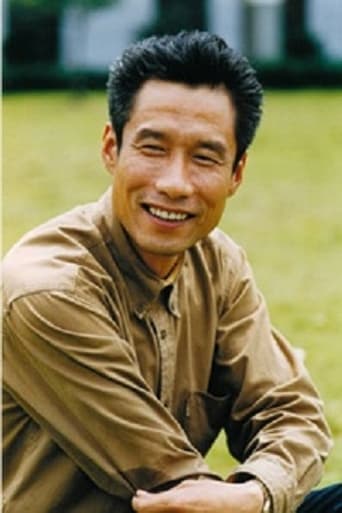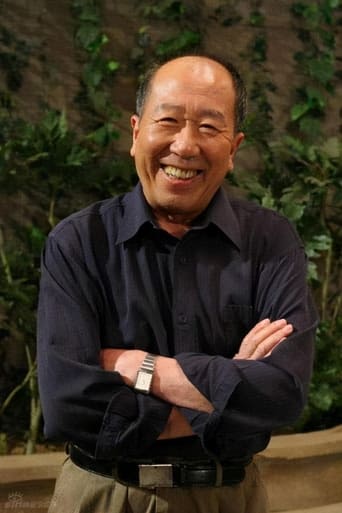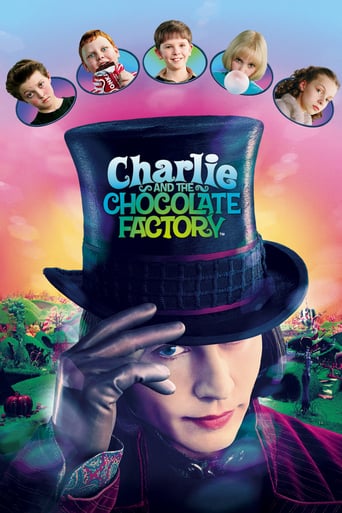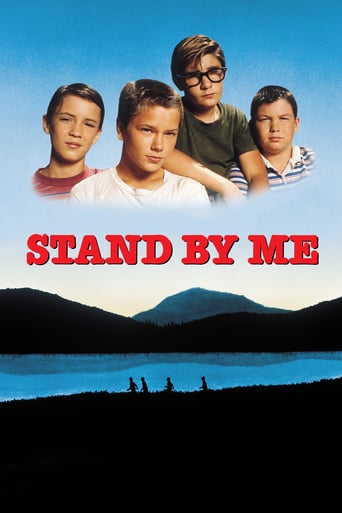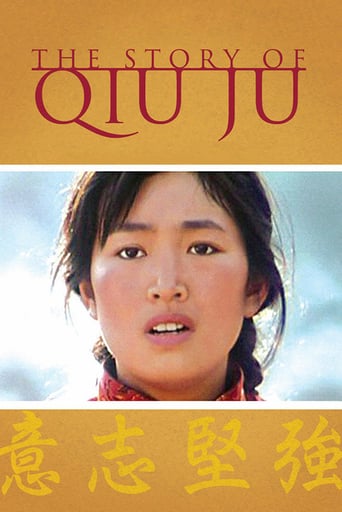
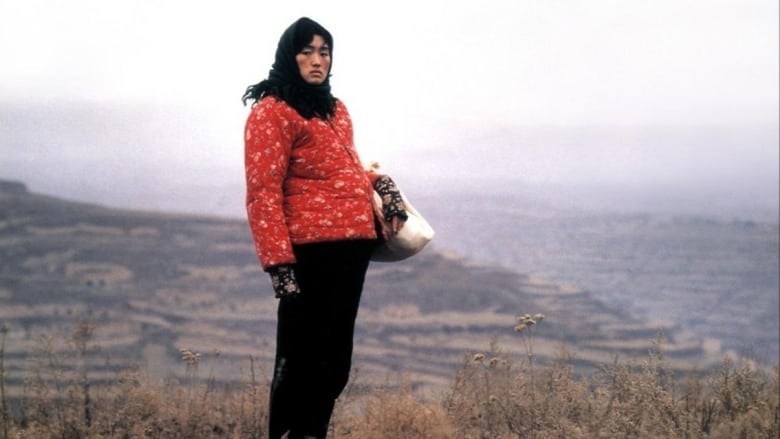
The Story of Qiu Ju (1992)
When her husband is kicked in the groin by the village head, Qiu Ju, a peasant woman, despite her pregnancy, travels to a nearby town, and later a big city to deal with its bureaucrats and find justice.
Watch Trailer
Cast
Similar titles

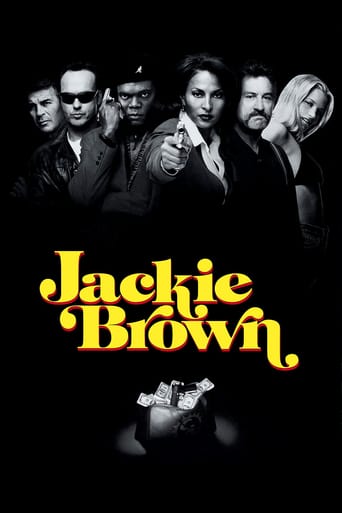
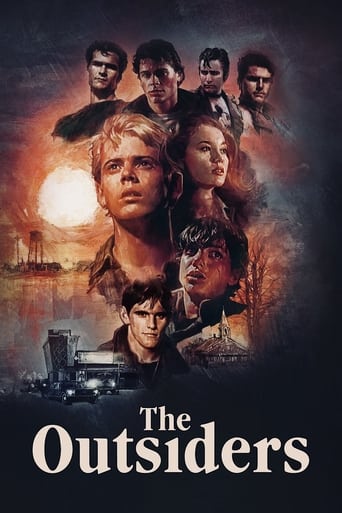

Reviews
the audience applauded
Simple and well acted, it has tension enough to knot the stomach.
The acting is good, and the firecracker script has some excellent ideas.
This film is so real. It treats its characters with so much care and sensitivity.
This is a small thing, but ripe, all about learning to naturally go out among life. This is is first in the story. A wife demands to know why her husband was kicked "where it hurts" by a local official. Why did he do it? She ventures out in the village, then down in the city in search of answers. The tip of the thread that humorously guides us through different faces so that altogether we get a snapshot of Chinese life.A constable arbites and gives his verdict, which seems perfectly reasonable, the accused will cover medical expenses and both parties are made aware that they were both wrong. But the wife is not pleased, she wants a more significant justice, and will go through the state apparatus looking for it. This has led some viewers to think that we're meant to be seeing an individual being caught in the gears of an absurd and uncaring bureaucracy; that seems to be a handy interpretation we have in the West ever since Kafka. But that's not the point being made here.Party officials, whenever encountered, are always benevolent and trying to be fair, quietly exasperated by the antics of the people in their charge. A higherup is kind enough to drive her back to the hotel on his car, another one stoically returns someone's stray animal. You can see why this among Zhang's early work was not banned over there.But every new verdict from higher offices remains the same however, which is to say, the world is just so, maybe not ideal. Why make a fuss about why we do things, why stand so rigidly? There's no deeper reason sometimes and we're better off mending ourselves by moving forward, going along unconstrained by "right" and "wrong". This is often hard to translate to someone in the West because we have made ourselves stupid by arguing from principle instead of seeing what the specific thing in front of us calls for now.And the notion of contrived uncontrivance extends in everything else. Zhang is aiming for a snapshot of life whereby we just mingle with things, what they used to call "neorealism" back in the day. The view it ventures to offer will be precious, a heartland generally closed to us.More pertinently for me, it evokes a view of life, a warmth and sense of community I like. Lovingly obstinate in trying to fathom its tempests, pettiness without malice, quiet perseverance in simple things. Zhang lets all of this envelop in a natural way, as impulse that climbs up through the soles of the feet.Gong Li is perfectly in tune with this, sublime in erasing any trace of an actor's face behind the shawl, making herself like a stump of uncontrived urges. We're meant to see that though a kind person, she's also a little dull in her fixation to an apology. And look how naturally she comes forth from her body, then watch her as the nervous empress in Golden Flower. What a range in which she moves freely.
After earning film festival awards and critical acclaim worldwide for his powerful tragedies, Director Zhang Yimou explores new themes in 'The Story of Qiu Ju.'Once again, he examines social injustice but this time avoids dark visions. The tone is ironic, but not angry or tragic, and the story often flashes with humor and wit. Some critics describe this film as a protest by Zhang Yimou against the Chinese government. Yet, the tale could be placed in any village in East Asia or, indeed, in any time and place one finds misunderstanding, wounded pride, conflict, and resolution.Gong Li, so beautiful in other films, reveals her acting versatility by portraying Qiu Ju (roughly pronounced as 'show chew'), as a hugely pregnant peasant. Gong Li had prepared for this role by living for months in a village of Northeast China to learn the local dialect and to get a feeling for this rural culture.The story begins when Qiu Ju demands an apology from her village chief, who had injured her husband during a quarrel with a blow to the groin. She goes to higher and higher levels of government in her appeals for this apology, even after her husband and others urge her to settle for money. At the end, after some surprises, she and the chief have both learned some life lessons. In the opening scene, Zhang Yimou draws us steadily into the rhythms and mood of the story when his camera gradually brings us past strolling pedestrians to introduce us to Qiu Ju and another peasant woman helping to push her disabled husband in a cart. We can see in this shot, and in other scenes, that bystanders were not aware what was going on.Some even give puzzled looks at the camera, adding to the film's gentle humor.Many other episodes gradually take us further into the culture and its story. For example, when Qiu Ju comes to the local government office to start her appeals, we first wait and watch while two teen-agers register their marriage. The district administrator has some fun by asking the shy youngsters if they will still love each other after their wedding night. After hearing Qiu Ju's story, this district administrator urges her to settle for cash from the village chief. Yet, she pushes onward, patiently assisted in this by her woman companion in appeals for an apology to higher and higher levels of government. One of the film's best portraits is of this little peasant woman quietly standing by Qiu Ju's side.She never questions nor complains; we all hope for friends like that.The film's quiet tone and slow pace also give us time to appreciate some underlying social criticisms. Qiu Ju hires a lawyer to write and deliver a petition to the court. He tells her he will make sure that justice is served. She seems impressed. 'So!! You get money to make sure the right thing is done. Being a lawyer is good!!'Yet, it doesn't turn out so well for her. The highest court in Xian, the provincial capital, has an impressive courtroom and set of procedures. Its jury of several judges collects testimony and ponders at length, but once again the verdict is upheld ..money but no apology. This seems to be the end of the tale. Some big surprises turn the story in a new direction. She and the chief next learn to respect each other, but See for yourself how it all turns out. You won't forget the vision of Qiu Ju at the end, bewildered and regretful, getting a verdict in her favor but that she did not want.Those who have lived in any East Asian village will understand why Qiu Ju was urged to take money but not force the chief to lose face. As one Chinese woman explained to me, ' .we and our families for generations lived too close to each other. We just had to get along. This was not always easy ..' She added that 'The Story of Qiu Ju' is the most understanding and affectionate portrait she had ever seen of the rural culture she knew as a child. Some Thai friends told me that the film also evoked childhood memories of their village life, where a Buddhist monk would arbitrate personal disputes and act to restore calm.PS: This film was made in 1992, after the ending of the Chinese cultural revolution enabled Zhang Yimou to enroll in the new Beijing Film Academy. Since then, he's made many films with worldwide renown, including 'Raise the Red Lantern' and 'Red Sorghum' with Gong Li and, more recently, 'Not One Less' and 'Hero'. You should be able to find 'Story of Qiu Ju' at any good video shop. It's already a classic.
The story is of a poor, uneducated yet stubborn farmwoman seeking justice from a highly bureaucratic government (for a seemingly minor injustice), and the nightmarish journey she must endure to achieve it. Her numerous trips to the city and meetings with various officials result in a surprise ending. The operative lesson from this movie: Be careful what you wish for, you just might get it.Having visited the Chinese country outside Tianjin and Beijing in 1999, this movie is the most realistic I have ever seen. This film serves as a geniune window into what everyday life is like in rural and urban China. The humorous scene of the shy young couple applying for the marraige license seems almost too real, as if they had a Candid Camera on them. I am most curious how the makers of this film were able to plop one of the most famous (and most beautiful) stars of mainland China in the middle of the many on-location scenes and not have anyone recognize her?? (Although in a couple of scenes it looks like people might have). Doubtless her unflattering costume emphasizing her pregnancy helped disguise her for most of the movie. Also note the distant camera shots, which enables the camera to be hidden and inconspicuous and also not draw attention to Gong Li. Either that or the makers must have used the most extras ever hired for a movie. I would like to find out more about the methods used to make this film. In any case, the results are another delightful and glorious piece from Zhang Yimou.
In a word...simple. All the plot is about is a wife whose husband got kicked in the d*** by some chief or governor (I didn't pay attention to> their ranks). Despite this, the movie is still great, Gong Li isn't as beautiful as usual (that jacket makes her look like a marshmellow), but she gives her usual beautiful performance. 9/10.

